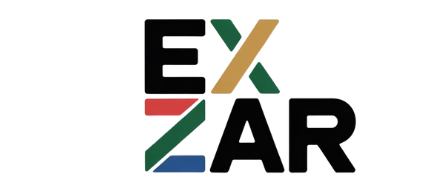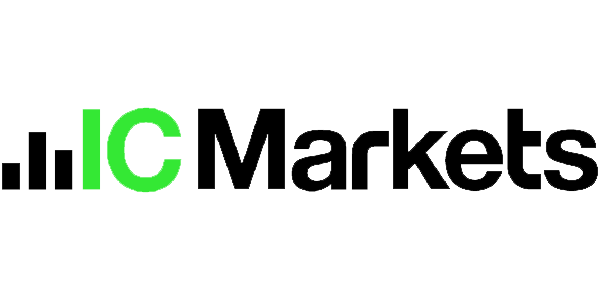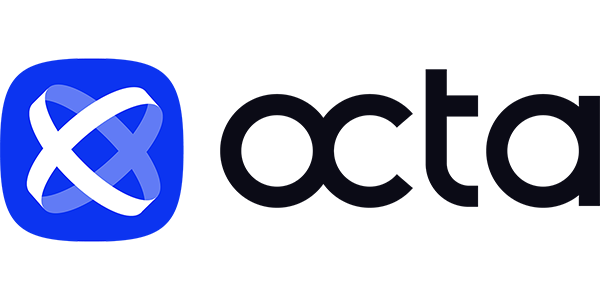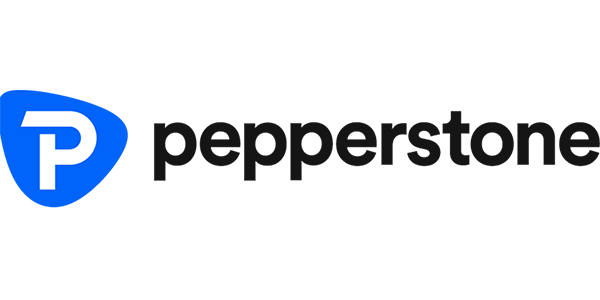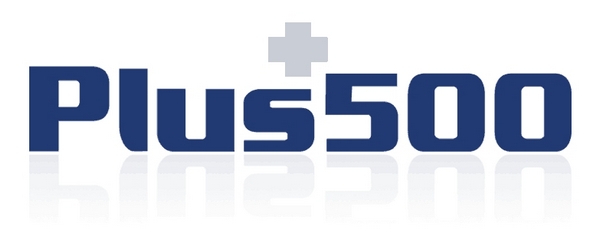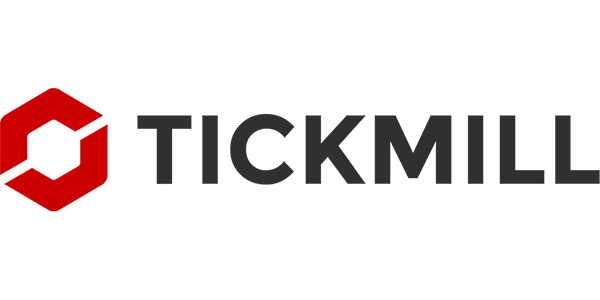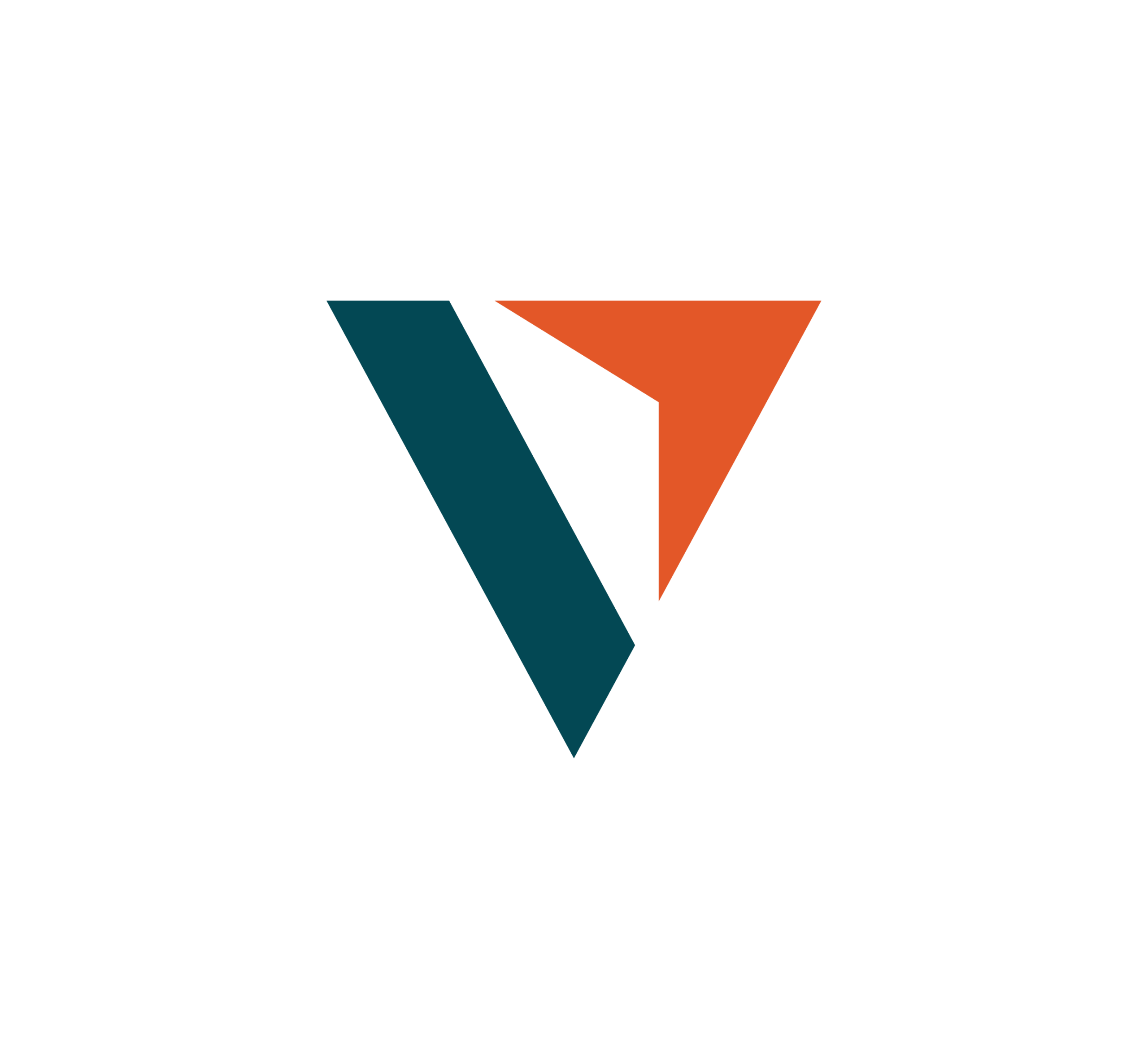List of The Best Platform for Trading
Choosing the right trading platform is critical to trade efficiently and access global markets. Leading platforms combine user-friendly interfaces, advanced analytical tools, and seamless execution to allow traders to make intelligent decisions in real time. For new and experienced traders alike, a quality platform can optimize your trading strategy and enhance overall performance.
- List of The Best Platform for Trading
- Top 14 Forex Brokers Serving South African Traders 2025
- South Africa Market Overview
- Capital Markets & Financial Infrastructure
- Strengths & Risks of the South African Market
- Regulatory & Market Context in South Africa
- Criteria for Choosing the Best Forex Broker in South Africa
- Broker Profiles & Comparative Review
- Strengths & Weaknesses of Forex Brokers in South Africa
- Comparative Summary of Broker Features
- How to Choose the Best Broker for South Africa
- Advantages of Trading for South Africa Residents
- FAQ
Following is a quick comparison of the top trading platforms in compatibility, features, and market access. They offer access to forex, stocks, commodities, indices, and cryptocurrencies, with desktop and mobile trading available to allow you to trade anywhere, anytime.
Top 14 Forex Brokers Serving South African Traders 2025
Below are several brokers often highlighted in South African broker review and comparison sites. Use this as a starting shortlist; always verify current terms.
| Commision | Instruments | Min Dep | Leverage | Platforms | ||
|---|---|---|---|---|---|---|
| From $0.00 per lot | Forex Stocks Indices Commodities Crypto | ZAR 1,900 / $100 | Up to 1:400 | MT4 MT5 AvaTradeGO AvaOptions | ||
| From $3.00 per side | Forex Indices Commodities | ZAR 3,000 / $150 | Up to 1:500 | MT4 MT5 cTrader TradingView | ||
| From $3.00 per lot | Forex Indices Commodities | ZAR 1,843 / $100 | Up to 1:500 | MT4 MT5 cTrader TradingView | ||
| From $0.00 per lot | Forex Indices Commodities | ZAR 190 / $10 | Up to 1:2000 | MT4 MT5 FXTM Trader | ||
| From $0.00 per lot | Forex Stocks Indices Commodities | ZAR 70 / $5 | Up to 1:1000 | MT4 MT5 HFM App | ||
| From $3.50 per side | Forex Indices Commodities Crypto | ZAR 3,545 / $200 | Up to 1:500 | MT4 MT5 cTrader | ||
| From $0.00 per lot | Forex Indices Commodities | ZAR 480 / $25 | Up to 1:1000 | MT4 MT5 OctaTrader | ||
| From $3.00 per side | Forex Indices Commodities Crypto | ZAR 3,000 / $150 | Up to 1:500 | MT4 MT5 cTrader | ||
| From $0.00 per lot | CFDs on Forex Stocks Indices Crypto | ZAR 1,843 / $100 | Up to 1:30 | Plus500 Platform | ||
| From $0.00 per lot | Forex Stocks Indices Commodities | ZAR 179 / $10 | Up to 1:2000 | MT4 MT5 R StocksTrader | ||
| From $3.50 per side | Forex Indices Commodities | ZAR 1,843 / $100 | Up to 1:500 | MT4 MT5 TradingView | ||
| From $3.00 per side | Forex Indices Commodities | ZAR 900 / $50 | Up to 1:500 | MT4 MT5 cTrader TradingView | ||
| From $0.00 per lot | Forex Indices Commodities | ZAR 90 / $5 | Up to 1:888 | MT4 MT5 XM App |
South Africa Market Overview
Economic Landscape & Growth
- South Africa is the continent’s most industrialized economy and has a diversified structure with services, mining, manufacturing, and agriculture.
- Growth has been sluggish in recent years. Real GDP expanded by 0.6% in Q2 2025 after marginal 0.1% in Q1.
- For full 2025, forecasts vary: PwC estimates growth somewhere between 0.5% and 1.3%, reflecting structural headwinds. The national budget outlook predicts GDP growth of 1.5% in 2025 (and ~1.6% in 2026) under certain assumptions. The IMF sees 2025 as a “pivotal” year: moderate improvement possible, but vulnerability remains.
Inflation, Interest Rates & Monetary Policy
- Inflation remains a policy focus. Producer inflation (PPI) rose to 2.1% year-on-year in August 2025, signaling cost pressures upstream.
- The South African Reserve Bank (SARB) manages the ZARONIA (overnight index) and administers JIBAR (interbank reference rate) for rand-denominated wholesale funds.
- Amid inflation concerns and global rate shifts, interest rate policy is constrained; the monetary stance tends to be cautious to avoid undermining growth.
Exchange Rate & Foreign Investment Flows
- The South African Rand (ZAR) is volatile and sensitive to capital flows, commodity prices, and global risk appetite.
- Recently, foreign direct investment (FDI) saw a sharp outflow in Q2 2025: ZAR 73.5 billion, partly due to corporate restructuring (e.g. Anglo American’s spin-off).
- However, portfolio investments reversed from a net outflow to inflows in that period, boosted by share distributions in corporate reorganizations.
- On currency trading, the ZAR/USD remains a key pair for global investors.
Capital Markets & Financial Infrastructure
Equities & Exchanges:
- The Johannesburg Stock Exchange (JSE / FTSE/JSE All Share) is the leading equity market in South Africa.
- In Q2 2026, JSE-listed equities rose ~9.7% in that quarter, continuing momentum from earlier periods.
- A secondary venue, the Cape Town Stock Exchange (CTSE), caters to small and medium caps, offering alternative listing options.
Bonds, Derivatives & Money Markets:
- South Africa has active debt markets (government bonds, corporate bonds).
- Derivatives (futures, options) and derivatives on indices or equities are available via exchanges and OTC instruments.
- The money market and interbank rates (JIBAR, ZARONIA) underpin many contracts and interest rate products.
Financial Sector Oversight:
- The Financial Sector Conduct Authority (FSCA) regulates financial services, including brokers.
- The banking sector remains relatively well capitalized and resilient, though interest rates and credit conditions are key constraints.
- The IMF’s Financial Sector Assessment Program (FSAP) has previously assessed the stability and resilience of South Africa’s financial system.
Strengths & Risks of the South African Market
Strengths / Opportunities
- Rich resource base: South Africa is a global leader in minerals (platinum, gold, chromium), which gives leverage to commodity cycles.
- Sophisticated financial infrastructure: Good market surveillance, exchange facilities, derivatives infrastructure, and regulatory framework.
- Diversified sectors: While mining remains important, services, manufacturing, tech, and agriculture contribute meaningfully.
- Global integration: Deep linkages to emerging markets, trade networks, and capital flows allow access to global opportunities.
- Policy reform momentum: Efforts to improve governance, privatization, structural reform, and infrastructure investment bring upside potential.
Risks / Challenges
- Energy and infrastructure constraints: Power shortages, water scarcity, and aging infrastructure are chronic challenges.
- Fiscal pressures & debt: High public debt and strained budgets limit fiscal leeway.
- Policy uncertainty & governance concerns: Political instability, delays in structural reforms, and regulatory uncertainty weigh on investor confidence.
- External vulnerabilities: Exposure to global commodity cycles, capital flow reversals, and rising global interest rates.
- Unemployment & socio inequality: Very high unemployment rates (overall and especially youth) limit domestic demand and raise social risk.
- Volatility in the ZAR: Currency swings can magnify risk for foreign-funded trades and investments.
Implications for Forex & Trading in South Africa
- The ZAR-based pairs (e.g. USD/ZAR) are very volatile — offering opportunities but with high risk.
- Brokers who support ZAR accounts / local banking offer competitive advantages (lower conversion cost, local deposit/withdrawal ease).
- Equity and index derivatives, commodity exposure (especially mining & energy), and global pairs are key instruments for South African traders.
- Monitoring policy updates, commodity prices, global rate shifts, and China/Asian demand is critical to trading strategies.
- Local regulation and broker oversight are relatively developed for Africa, so well-chosen brokers offer better trust and stability.
Regulatory & Market Context in South Africa
Legal Status of Forex Trading
Forex trading (including leveraged derivative instruments) is legal in South Africa, provided the broker is licensed or permitted to accept South African clients under relevant regulation. Browse sources like ForexBrokers.com, which explicitly states that “forex trading is legal when using a properly licensed broker by the Financial Sector Conduct Authority (FSCA).”
Brokers are often required to register under the Financial Sector Conduct Authority (FSCA) as Financial Services Providers (FSPs). The FSCA oversees the conduct of financial market participants, ensuring investor protection, transparency, proper capital adequacy, and complaint resolution mechanisms.
South African brokers offering over-the-counter derivatives may also need to be designated as Over-the-Counter Derivative Providers (ODPs) depending on the instrument and structure. Some broker comparison sites note whether a broker is FSCA-licensed or FSCA + ODP permitted when listing “FSCA-regulated brokers.”
Currency & Funding Considerations
A major feature for South African traders is dealing with the South African Rand (ZAR). Good brokers in South Africa may offer ZAR accounts, allowing deposit and withdrawal in local currency and reducing foreign exchange conversion cost and risk. Many broker reviews flagged this as a differentiator.
However, not all global brokers support ZAR accounts or local bank transfer. Traders must verify whether the broker allows ZAR funding, what banks are supported, and the timing and fees for withdrawals.
Risks & Scams in the Market
Because the forex world is global and borderless, South African traders are exposed to offshore brokers, marketing scams, and unlicensed operations targeting emerging markets. Broker comparison sites emphasize the importance of verifying FSCA registration and avoiding brokers that are not transparent or neglect local compliance.
To reduce risk, traders often choose brokers with dual licensing (FSCA + top-tier regulators like FCA, ASIC) and test withdrawal processes early before scaling their capital.
Criteria for Choosing the Best Forex Broker in South Africa
When assessing a forex broker for the South African market, use a rigorous set of criteria. Below is a refined checklist (with commentary) based on expert reviews:
| Criterion | Why It Matters | What to Verify / Use as Test |
|---|---|---|
| Regulation & Compliance | Ensures legal protection and oversight | Broker must display FSCA FSP/ODP registration number; check in FSCA register; prefer dual regulation (FSCA + FCA, ASIC, etc.) |
| ZAR Account & Local Banking Support | Reduces currency conversion costs and simplifies withdrawals | Does the broker support ZAR deposits/withdrawals? Are major SA banks supported? Test local banking route. |
| Trading Costs, Spreads & Commissions | Affects net profitability | Compare typical EUR/USD spread, commissions, swap/overnight costs, inactivity or withdrawal fees |
| Platform & Instruments | Determines flexibility and market access | Supports MT4/MT5 or proprietary platforms; breadth of instruments (forex, metals, indices, crypto, equities) |
| Execution Speed & Slippage | Better fills, less unexpected loss | Test via demo and small real trades; measure slippage on major currency pairs |
| Customer Support & Local Presence | Closer assistance, local understanding | Support during SA business hours, local language, responsiveness, presence |
| Account Types & Leverage | Adapt to different trading styles | Availability of standard, ECN/raw, micro accounts; leverage appropriate to SA regulation |
| Withdrawal & Deposit Reliability | Protects access to your funds | Timely processing, no hidden conditions, test with smaller sums |
| Education, Research & Tools | Helps trader development | Webinars, market analysis, tools, copy trading, alerts |
| Reputation & History | Avoids risky or transient brokers | Check user reviews, history of payouts, regulatory actions, longevity |
Broker Profiles & Comparative Review
In the fast-paced world of forex and CFD trading, choosing the right broker can make a significant difference in your success. Our Broker Profiles & Comparative Review provides detailed insights into the most reliable brokers, highlighting their account types, trading platforms, spreads, and execution speeds. This guide helps traders compare options, understand key features, and select the best broker tailored to their trading style and goals.
AvaTrade
Avatrade
AvaTrade is a globally recognized broker offering forex, CFDs, and cryptocurrencies. Its platforms include MT4, MT5, and AvaTradeGo, suitable for beginners and experienced traders. The broker also provides automated trading options and educational resources.
Key Features:
- MT4, MT5, AvaTradeGo platforms
- Forex, commodities, indices, and crypto
- Competitive spreads and leverage options
- Automated and copy trading
AvaTrade is ideal for traders seeking versatility and robust tools. Its platforms are user-friendly while supporting advanced strategies. Overall, AvaTrade provides a secure and flexible trading environment.
HFM (HF Markets)
HFM
HFM is an international broker known for low spreads and fast execution. It offers MT4 and MT5 platforms suitable for all trader levels. HFM supports multiple account types and a variety of instruments.
Key Features:
- MT4/MT5 platforms
- Forex, indices, commodities, and CFDs
- ECN and standard accounts
- Tight spreads and fast execution
HFM is perfect for both beginners and professional traders. Its infrastructure ensures stable and efficient trading. Overall, HFM offers reliable services with competitive conditions.
Octa
Octa
Octa is a forex broker providing low spreads and fast order execution. It supports MT4 and MT5 platforms with multiple account types. Octa offers a variety of trading instruments and leverage options.
Key Features:
- MT4 and MT5 platforms
- Forex, commodities, indices, and crypto
- ECN and standard accounts
- Tight spreads and fast execution
Octa suits traders seeking cost-effective trading. Its platform flexibility supports both novice and professional strategies. Overall, Octa is a reliable broker with solid performance.
Tickmill
Tickmill
Tickmill is a broker known for low spreads and fast ECN execution. It supports MT4 platform with multiple account types. Tickmill offers forex, indices, and commodity trading.
Key Features:
- MT4 platform
- Forex, indices, commodities, and CFDs
- ECN accounts with tight spreads
- Fast execution
Tickmill is ideal for scalpers and active traders. Its low-cost trading conditions are highly competitive. Overall, Tickmill offers a reliable and efficient trading environment.
FXTM
FXTM
FXTM provides flexible account types and competitive spreads. It supports MT4 and MT5 platforms for desktop and mobile trading. FXTM offers forex, commodities, indices, and crypto trading.
Key Features:
- MT4 and MT5 platforms
- ECN and standard accounts
- Forex, commodities, indices, and cryptocurrencies
- Fast execution and flexible leverage
FXTM is suitable for traders of all levels. Its robust infrastructure ensures smooth trading. Overall, FXTM is a reliable broker with strong market support.
XM
XM
XM is a globally trusted broker with tight spreads and multiple account types. It offers MT4 and MT5 platforms for desktop and mobile users. XM supports a wide range of instruments including forex, commodities, and indices.
Key Features:
- MT4/MT5 platforms
- ECN and standard accounts
- Forex, commodities, indices, and crypto
- Low spreads and educational resources
XM is perfect for both new and experienced traders. Its platforms provide intuitive and professional tools. Overall, XM ensures reliable trading conditions worldwide.
IC Markets
IC
IC Markets is a leading broker offering raw spreads and ECN execution. It supports MT4, MT5, and cTrader platforms. IC Markets offers a wide range of forex, commodities, indices, and cryptocurrencies.
Key Features:
- MT4, MT5, cTrader platforms
- ECN accounts with low spreads
- Forex, commodities, indices, and crypto
- High liquidity and fast execution
IC Markets is ideal for scalpers and professional traders. Its fast execution and low-cost trading enhance profitability. Overall, IC Markets provides efficient and transparent trading.
Pepperstone
Pepperstone
Pepperstone is known for low spreads and fast execution. It offers MT4, MT5, and cTrader platforms. Pepperstone supports a wide range of instruments including forex and CFDs.
Key Features:
- MT4, MT5, cTrader platforms
- ECN and standard accounts
- Forex, indices, commodities, and crypto
- Tight spreads and fast execution
Pepperstone is ideal for active and professional traders. Its advanced technology ensures reliable execution. Overall, Pepperstone delivers competitive and trustworthy trading conditions.
BlackBull Markets
BlackBull Markets
BlackBull Markets provides ECN trading and low spreads. It supports MT4 and MT5 platforms for desktop and mobile. Traders can access forex, indices, commodities, and crypto markets.
Key Features:
- ECN accounts with low spreads
- MT4 and MT5 platforms
- Forex, commodities, indices, and crypto
- Fast execution and high liquidity
BlackBull Markets is suited for active and professional traders. Its platform stability ensures reliable trading. Overall, BlackBull Markets offers competitive and secure trading conditions.
FP Markets
FP
FP Markets is an Australian broker offering ECN accounts with low spreads. It supports MT4, MT5, and IRESS platforms. FP Markets offers forex, indices, commodities, and crypto trading.
Key Features:
- MT4, MT5, IRESS platforms
- ECN and standard accounts
- Forex, commodities, indices, and crypto
- Fast execution and tight spreads
FP Markets is ideal for professional traders seeking low-cost execution. Its advanced platforms enhance trading efficiency. Overall, FP Markets provides a reliable and competitive trading environment.
Vantage
Vantage
Vantage provides ECN and standard accounts with tight spreads. It supports MT4 and MT5 platforms. Vantage offers forex, commodities, indices, and crypto trading.
Key Features:
- MT4 and MT5 platforms
- ECN and standard accounts
- Forex, commodities, indices, and crypto
- Competitive spreads and fast execution
Vantage is suitable for beginners and professional traders. Its platform flexibility supports various strategies. Overall, Vantage provides reliable and efficient trading conditions.
RoboForex
RoboForex
RoboForex offers ECN and standard accounts with flexible trading options. It supports MT4, MT5, cTrader, and R Trader platforms. RoboForex provides a wide range of instruments including forex, commodities, indices, and crypto.
Key Features:
- MT4, MT5, cTrader, R Trader platforms
- ECN and standard accounts
- Forex, commodities, indices, and crypto
- Low spreads and fast execution
RoboForex is ideal for both new and professional traders. Its wide platform selection enhances trading versatility. Overall, RoboForex offers a secure and efficient trading environment.
Plus500
Plus500
Plus500 is a broker offering CFD and forex trading with user-friendly platforms. It supports web and mobile trading for all trader levels. Plus500 offers various instruments including forex, commodities, indices, and cryptocurrencies.
Key Features:
- Web and mobile platforms
- Forex, commodities, indices, and crypto CFDs
- User-friendly interface
- Tight spreads and risk management tools
Plus500 is perfect for beginner and experienced traders. Its platform is simple yet effective for trading. Overall, Plus500 provides a secure and accessible trading environment.
Strengths & Weaknesses of Forex Brokers in South Africa
Evaluating how these brokers perform in the South African context helps clarify trade-offs.
Strengths
- Regulated landscape improving: More brokers are acquiring FSCA registration, bringing greater legitimacy and safety.
- ZAR account support: Some brokers allow local currency trading, reducing currency conversion risk.
- Global access: South Africans can access major forex pairs, commodities, global indices, stocks via brokers.
- Competitive pricing: Given fierce broker competition, many offer attractive spreads, promotions, and flexible account types.
- Technological infrastructure: Modern platforms (MT4/5, mobile, web) are well supported.
Weaknesses & Risks
- Regulation gaps / entity mismatches: Some brokers accept SA clients via offshore entities, meaning FSCA protections may not fully apply.
- Conversion and banking friction: Brokers without ZAR support or using foreign banking routes may incur forex conversion and processing delays.
- Withdrawal delays or rejections: If local banking systems are not well integrated, delays or hiccups may occur.
- Leverage misuse and volatility risk: High leverage can lead to large losses, particularly in volatile markets.
- Misleading claims or scams: South African traders must be cautious of brokers making unrealistic profit or bonus promises.
- Limited FSCA-licensed brokers: Though improving, not all popular global brokers operate with full FSCA licensing, so local recourse is weaker.
Comparative Summary of Broker Features
Here’s a simplified comparative snapshot (conceptual; you should fill in actual numbers before publication):
| Broker | FSCA License / Entity | ZAR Account Support | Spread Benchmark (EUR/USD) | Strengths | Caveats |
|---|---|---|---|---|---|
| IG | Yes (FSP + possible ODP) | Yes or via SA branch | ~0.98 pips typical | Strong brand, safety, broad market access | Recent shift away from SA entity for new clients |
| Tickmill | Yes | Possibly limited | ~1.60 pips (Standard) | Tight spreads, ECN model | Local banking paths must be verified |
| HFM | FSCA-listed | Depends on method | ~1.20 pips (Zero/ECN) | Balanced service, good instrument range | ZAR support to check |
| AvaTrade | FSCA compliance | Possibly via SA banking | ~0.93 pips | Strong features, good reputation | Spread slightly higher for premium accounts |
How to Choose the Best Broker for South Africa
Your ideal broker depends on your trading style, capital, risk tolerance, and priorities. Here’s a recommended decision path:
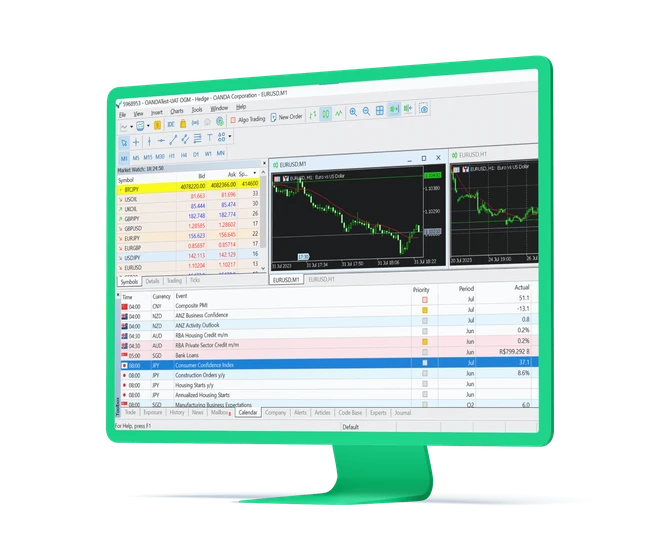
- Regulation first
Only consider brokers that clearly display FSCA registration or operate under FSCA-compliant entities. Avoid brokers that don’t disclose their regulatory status. - Test ZAR deposit/withdrawal
Even if a broker claims to support ZAR, do a small deposit & withdrawal to test how smoothly it works, what fees apply, and how long it takes. - Compare trading costs in your instrument set
If you mostly trade EUR/USD or major pairs, compare spreads, commissions, and swap costs across brokers. Also test on your preferred instruments (metals, indices) as cost structures may differ. - Use demo & small live testing
Use demo or micro accounts to test execution, slippage, order fill behavior, platform responsiveness before scaling. - Check local support & service
Prefer brokers with customer support during South African hours, local phone support or chat, and ability to assist with banking issues. - Review account types vs leverage
Ensure the broker offers an account type that matches your risk (Standard, ECN, Zero). Don’t leap into ultra-high leverage before you understand margin risk. - Monitor performance over time
Even after choosing, monitor how the broker handles major events, withdrawal behavior, client feedback, and whether service remains stable.
Advantages of Trading for South Africa Residents
Strong Regulatory Framework (FSCA Oversight)
- South Africa has one of the most advanced regulatory environments in Africa through the Financial Sector Conduct Authority (FSCA).
- Local licensing requirements (FSP/ODP) give traders added transparency, protection, and recourse compared to unregulated offshore brokers.
Access to ZAR Accounts
- Many top brokers now offer South African Rand (ZAR) trading accounts.
- This allows residents to fund and withdraw in local currency, avoiding USD/EUR conversion fees and reducing exchange risk.
High Market Participation & Infrastructure
- South Africa has an active trading community, with increasing retail adoption of forex and CFDs.
- The Johannesburg Stock Exchange (JSE) provides a gateway to equities, while brokers extend access to global forex, commodities, indices, and crypto.
Diverse Broker Choice
- Residents can select from local FSCA-regulated brokers or global tier-1 brokers (FCA, ASIC, CySEC) that accept SA clients.
- This competition benefits traders through lower spreads, multiple account types, and innovative tools.
Exposure to Volatile ZAR Pairs
- The South African Rand (ZAR) is one of the most traded emerging market currencies, paired with USD, EUR, and GBP.
- Its volatility creates opportunities for traders to capitalize on short-term price movements.
Tax Benefits & Legal Clarity
- Forex trading is legal in South Africa, and profits are taxable under clear SARB/SARS rules.
- Traders benefit from structured guidelines rather than gray-zone legality faced in some other African markets.
Local Banking & Payment Integration
- Many brokers support local bank transfers, EFT, and instant payment gateways for deposits/withdrawals.
- This makes transactions faster and cheaper compared to relying on international wire transfers.
Education & Trading Resources
- South African traders have access to a growing ecosystem of forex education platforms, seminars, and broker-hosted webinars.
- Local forex expos and community events make it easier for residents to develop skills and network.
Conclusion
South Africa offers one of the most attractive environments for forex trading in Africa, thanks to its FSCA regulation, active financial markets, and growing retail participation. However, choosing the right broker is crucial to ensure safety, fair pricing, and reliable access to global markets. By combining regulatory diligence, cost comparison, and practical testing (deposits/withdrawals, demo trades), South African traders can find a broker that maximizes opportunity while minimizing risk.
FAQs
Is forex trading legal in South Africa?
Yes. Forex trading is legal when done through brokers regulated by the Financial Sector Conduct Authority (FSCA). Many global brokers also accept South African clients, but traders should check FSCA registration for added protection.
